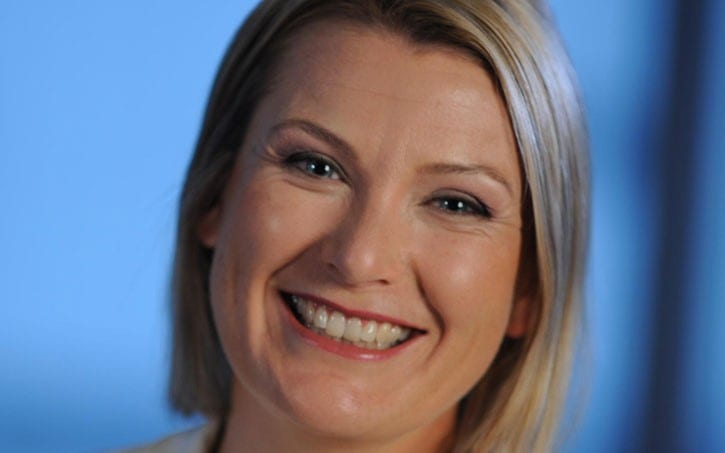Behaviour goes beyond the individual. Teams, the workplace, even a business can all be said to display behavioural traits. When meeting clients and consulting on complex problems, EY’s Emma Spiers applies her knowledge of human behaviour to the issue at hand – all in pursuit of efficiency, improvement and clear communication.
Spiers is currently a Partner in EY’s Performance Improvement Advisory business in Sydney. Part of a high performing practice, Spiers helps businesses operating in the financial services sector respond to change, whether it’s driven by new regulatory requirements, changes in customer behaviour or a simple desire to improve processes. Internally, as one of the longest serving members of the team, she is also responsible for bringing new people on board, and developing and implementing best-practice methodology.
Spiers has built a career in professional services, starting with Coopers & Lybrand management consulting in London in 1995. As a graduate consultant Spiers took advantage of further study options and undertook her management accounting (CIMA) qualification. Spiers moved to Sydney for a role at PwC consulting where she worked for the legendary Cameron Clyne who now serves as Group CEO, National Australia Bank.
After a stint at IBM Consulting, in 2005 Spiers was the seventh person to join EY in Sydney in the new Business Advisory Services practice. The business now employs 1,000 people across Australia and New Zealand. Spiers describes joining the EY advisory practice as it was starting out as a great adventure. “Being a part of building something is a great learning experience,” she says.
The Sydney consultant has great respect for EY’s Asia Pacific Advisory leader, Doug Simpson, who she considers as a business mentor. “He has an incredible zest for life, an ability to connect directly with individuals and provide the right advice at the right time,” she says. She also credits his direction and vision as a motivating force. Simpson implemented a simple set of operating rules that embodied core values to keep the team on task and “connected to strategy” as they built the business.
Despite an unwavering commitment to work, Spiers takes her father’s advice on boundaries. “You will not look back in your retirement and wish you had worked longer hours” is his mantra. Blurred by new technology, she admits the line between personal and professional life isn’t easy to maintain, however she looks to the opportunities available, finding flexible patterns that work for her, which help achieve a balance.
The EY advisor is interested in the practice of change management and the reasons why it often goes wrong. Inspired by the concepts in Seth Godin’s Tribes she would love to put aside time to research the theoretical background to human behaviours surrounding change, direction and trust. Reading the book for the second time, she declares: “I believe that we are hard-wired to operate in ‘tribes’ and that this is where we take our direction and where we build our trust.” With post-graduate qualifications in counselling and applied psychology under her belt it’s no wonder she is able to delve beneath the surface of an issue and dissect the core issues.
Working with people allows Spiers the opportunity to bounce ideas around. She much prefers group dynamics to being alone or working from home. Her workplace accessory of choice is more likely a whiteboard than a set of headphones. Spiers acknowledges she is still learning and recognises a recent shift in the speed at which she makes decisions and acts on opportunities. In the two years at EY since becoming Partner she has noticed significant developments in her time management. This has been crucial in situations where she has had to juggle day-to-day tasks with the planning and process required to implement improvements and streamline activities that assist the sustainability and longevity of the business.
In 2014 Spiers will focus on sourcing and hiring new talent, and developing her staff in-house. Analytical skills and a capacity for critical and structured thinking is key in her team. Given the level of uncertainty in client-based consulting and the diversity of problems they face, she expects employees to be comfortable constructing their own anchors and measures. Sitting in the financial services sector, she also looks for problem solving skills and a good knowledge of banking, wealth or insurance. “The business world is moving ever faster,” she says, “having the right skills and knowledge to support our clients at the right time is one of our biggest challenges.”


